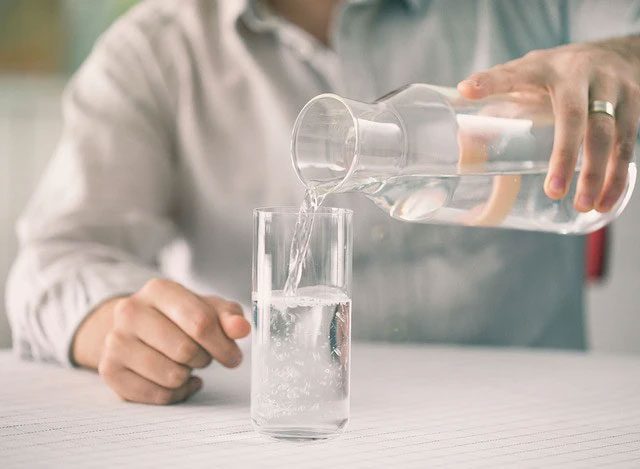A study has shown that individuals who drink water in this manner may age faster and have a higher risk of early death.
The research published in The Lancet was conducted by scientists at the National Institutes of Health in the United States to explore the link between water intake and early mortality risk. Over a span of 25 years, the scientists analyzed health examination results from more than 11,000 adults in the U.S. aged 45 to 66.

People who drink less water are at higher risk of aging faster.
The researchers assessed the amount of water intake by measuring sodium concentration in the blood. Higher sodium levels indicate lower water consumption and dehydration.
They found that participants with sodium levels higher than the normal range of 135-146 mmol/L had poorer health outcomes. Specifically, those with sodium levels above 142 mmol/L had a 10-15% higher risk of aging faster compared to those with sodium levels between 137-142 mmol/L.
Moreover, individuals with sodium levels exceeding 144 mmol/L exhibited physiological signs of aging more than 50% and had a 21% higher risk of early death.
Those who drink less water face a greater risk of accelerating aging and developing chronic diseases such as heart failure, stroke, atrial fibrillation, peripheral artery disease, chronic lung disease, diabetes, and dementia.
The study’s author, Natalia Dmitrieva, a researcher at the National Heart, Lung, and Blood Institute, stated: “The risk of developing these diseases also increases as we age and accumulate damage in various tissues throughout the body.”
A 2020 study involving 2,000 adults in the United States found that only 20% of participants consumed the necessary amount of water. However, as people age, their thirst response diminishes, making it harder for them to recognize when they are dehydrated.
Expert Dmitrieva emphasized: “The study results suggest that adequate hydration can slow the aging process and promote overall health.”
The best solution for maintaining optimal daily hydration is to continuously drink water throughout the day, especially when engaging in physical activities.
Although there are no specific rules or guidelines on the exact amount of water one should drink daily, the Centers for Disease Control and Prevention (CDC) in the U.S. recommends that individuals should hydrate through both drinking water and consuming foods (fruits and vegetables).



















































